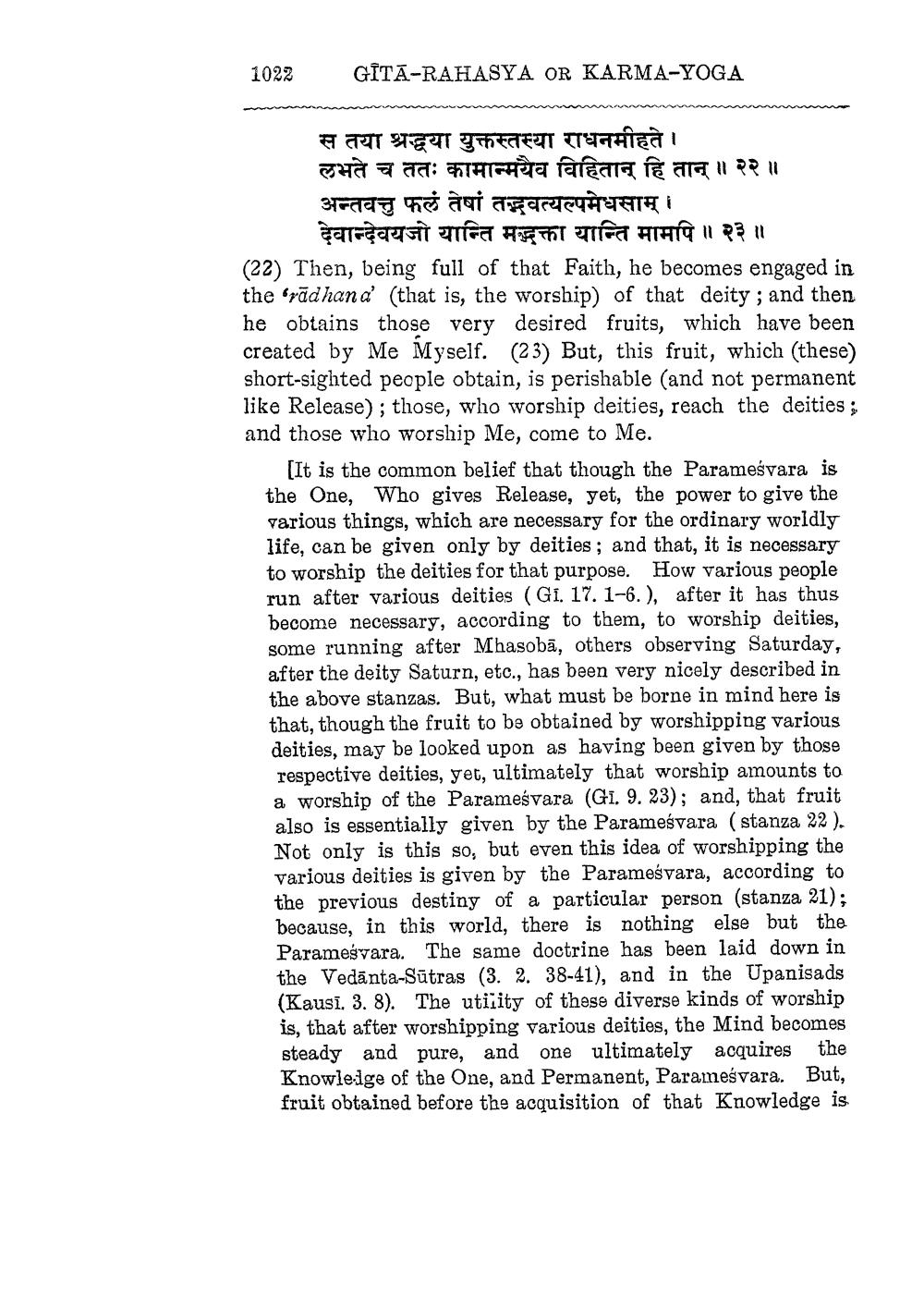________________
1022
GÍTA-RAHASYA OR KARMA-YOGA
स तया श्रद्धया युक्तस्तस्या राधनमीहते। लभते च ततः कामान्मयैव विहितान् हि तान् ॥ २२ ॥ अन्तवत्तु फलं तेषां तद्भवत्यल्पमेधसाम् ।
देवान्देवयजो यान्ति मद्भक्ता यान्ति मामपि ॥ २३ ॥ (22) Then, being full of that Faith, he becomes engaged in the 'rādhana' (that is, the worship of that deity; and then he obtains those very desired fruits, which have been created by Me Myself. (23) But, this fruit, which (these) short-sighted people obtain, is perishable (and not permanent like Release); those, who worship deities, reach the deities; and those who worship Me, come to Me.
[It is the common belief that though the Parameśvara is the One, Who gives Release, yet, the power to give the various things, which are necessary for the ordinary worldly life, can be given only by deities; and that, it is necessary to worship the deities for that purpose. How various people run after various deities (Gi. 17. 1-6.), after it has thus become necessary, according to them, to worship deities, some running after Mhasobā, others observing Saturday, after the deity Saturn, etc., has been very nicely described in the above stanzas. But, what must be borne in mind here is that, though the fruit to be obtained by worshipping various deities, may be looked upon as having been given by those respective deities, yet, ultimately that worship amounts to a worship of the Parameśvara (Gi. 9. 23); and, that fruit also is essentially given by the Parameśvara (stanza 22 ). Not only is this so, but even this idea of worshipping the various deities is given by the Parameśvara, according to the previous destiny of a particular person (stanza 21); because, in this world, there is nothing else but the Paramesvara. The same doctrine has been laid down in the Vedānta-Sūtras (3. 2. 38-41), and in the Upanisads (Kausi. 3. 8). The utility of these diverse kinds of worship is, that after worshipping various deities, the Mind becomes steady and pure, and one ultimately acquires the Knowledge of the One, and Permanent, Parameśvara. But, fruit obtained before the acquisition of that Knowledge is




